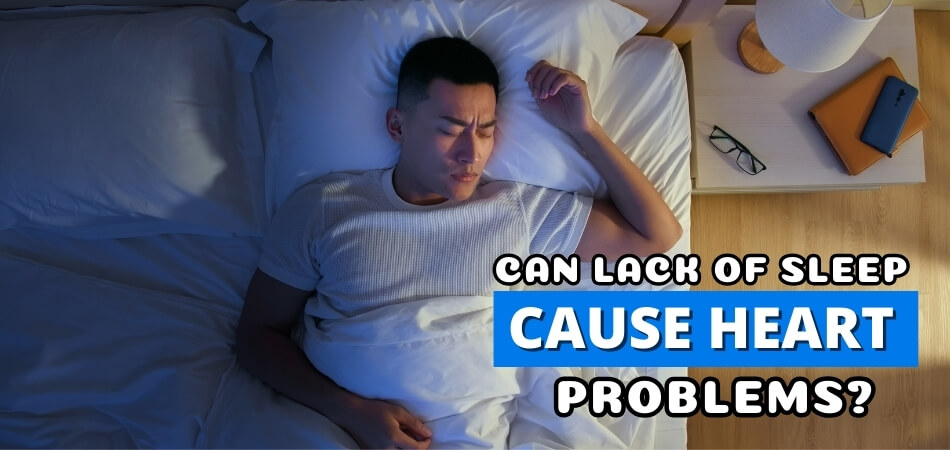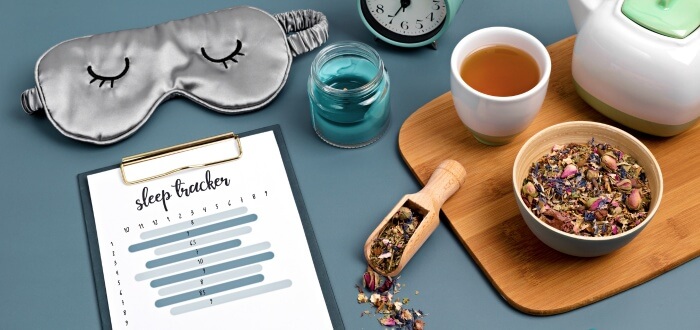The importance of sleep is often underestimated in our fast-paced society. Many people prioritize work, social commitments, and even leisure activities over a good night's sleep. Yet, inadequate sleep can have serious health repercussions.
A frequently asked question is, can lack of sleep cause heart problems? The answer is increasingly clear: Yes, it can. Studies have shown that insomnia is linked to high blood pressure and heart disease.
Over time, poor sleep can contribute to unhealthy habits that directly impact heart health, such as elevated stress levels, diminished motivation for physical activity, and poor dietary choices.
For a healthier heart, experts recommend regular exercise and a balanced diet and prioritizing quality sleep, including factors like getting enough natural light earlier in the day.
Why Do People Get Too Little Sleep?
Sleep often takes a backseat to other priorities in today's fast-paced world. The consequences can be severe, impacting both mental and physical health. Let's delve into why people often fail to get sufficient sleep.

Lifestyle Choices
Many people voluntarily sacrifice sleep for work or leisure. Social gatherings, late-night shows, and work deadlines can all eat into sleep time. This choice to forgo sleep can have long-term health repercussions.
Work Demands
The modern work environment often encourages long hours. Some people work multiple jobs or deal with demanding schedules. As a result, they find it challenging to allocate enough time for adequate sleep.
Stress and Anxiety
Mental health issues can significantly affect sleep quality. Stress and anxiety often make it difficult to fall asleep or stay asleep. A restless mind leads to fewer hours of restorative sleep.
Electronic Devices
The use of electronic devices before bedtime is a common issue. The blue light emitted can interfere with the production of melatonin, a sleep hormone. Consequently, falling asleep becomes more difficult.
Poor Sleep Hygiene
Not everyone who struggles with sleep does so because of external demands or distractions. Some have poor sleep hygiene, including irregular sleep schedules or uncomfortable sleeping environments. These factors can result in insufficient sleep.
Understanding these reasons can help us prioritize sleep better and make more informed choices for a healthier lifestyle.
Can Lack of Sleep Cause Heart Problems?
The significance of sleep in maintaining good health is often overlooked. Yet, emerging evidence suggests a strong connection between lack of sleep and heart problems. Let's examine how insufficient sleep can negatively impact cardiovascular health.

Insomnia and other sleep disorders are increasingly linked to high blood pressure and heart diseases. According to research, poor sleep can contribute to elevations in stress hormones, which can exacerbate heart conditions. Over time, this may lead to complications like heart attacks or strokes.
Adopting unhealthy lifestyle choices is another consequence of inadequate sleep. Reduced motivation for exercise and the tendency to make poor food selections are commonly observed. These habits further contribute to heart problems, making sleep deprivation a silent but significant risk factor.
Prioritizing sleep is crucial not just for mental wellness but for heart health as well. Adequate exposure to natural light, especially earlier in the day, can help improve sleep quality. By focusing on better sleep hygiene, we can take a proactive step toward reducing the risk of heart-related issues.
How Does Lack of Sleep Affect the Heart?
Sleep is an essential component of overall health and well-being. Recent studies have shed light on its particular importance for cardiovascular health. Here are some of the top reasons why a lack of sleep can adversely affect the heart.
Elevated Blood Pressure
Insufficient sleep is known to cause fluctuations in hormone levels. These hormonal imbalances can contribute to an increase in blood pressure. Elevated blood pressure is a well-known risk factor for heart disease.
Stress Hormone Release
Lack of sleep can trigger the body's stress response, releasing stress hormones like cortisol. Elevated cortisol levels have been associated with heart problems, including an increased risk of heart attacks.
Unhealthy Lifestyle Choices
When you're sleep-deprived, making healthy choices becomes more challenging. This often leads to opting for foods high in sugar and fats. Such dietary choices can lead to weight gain and contribute to heart disease.
Reduced Physical Activity
People who are sleep-deprived are generally less motivated to engage in physical activity. Exercise is essential for maintaining good heart health. Decreased physical activity can worsen existing heart conditions or even lead to new ones.
Impaired Metabolism
Sleep plays a vital role in metabolic processes like glucose metabolism. Poor sleep can lead to issues like insulin resistance. Elevated insulin levels can contribute to heart problems, including an increased risk of coronary artery disease.
Understanding the relationship between sleep and heart health is crucial. By prioritizing good sleep hygiene, we can protect our hearts and improve our overall well-being.
How Can You Fix Your Sleeping Routine?
Restoring a healthy sleep routine is a crucial step toward better well-being and a lower risk of chronic illnesses. It's easier said than done, but there are effective strategies available. One tool that may be particularly helpful is the Dodow device.

Identify Sleep Interference
Start by recognizing the factors that interfere with your sleep. It could be stress, poor diet, or an irregular schedule. Once identified, you can work on eliminating these issues or finding coping mechanisms.
Dodow Device for Relaxation
Introducing the Dodow device into your bedtime routine can be a game-changer. This device projects a soft, pulsating light on the ceiling that helps synchronize your breathing. By focusing on this light and aligning your breath, you can reach a state of relaxation conducive to sleep.
Create a Sleep-Friendly Environment
Ensure that your bedroom is conducive to sleep. Make it dark, cool, and quiet. If that's not possible, use earplugs or a white noise machine to block out disturbing sounds.
Pair with Dodow's Light Metronome
You can couple your new sleep-friendly environment with Dodow's light metronome feature. It can help you maintain a calming rhythm as you prepare to fall asleep, making the environment even more sleep-friendly.
Establish a Consistent Schedule
It's vital to go to bed and wake up at the same time every day. This helps set your body's internal clock. Over time, this will make falling asleep and waking up easier.
Using tools like the Dodow device and following these guidelines, you can take control of your sleep routine. Better sleep can improve health outcomes and a higher quality of life.
Bottom Lines
After examining various facets of this important health issue, it's evident that sleep should never be compromised. The lifestyle choices we make often sideline sleep, and the implications of this neglect can be far-reaching. If you've wondered, can lack of sleep cause heart problems?
As you've already found out, it's confirmed links between sleep deprivation and elevated blood pressure, stress hormone release, and heart disease. The adverse effects don't stop at merely feeling tired; they extend to significantly increasing the risk of heart-related issues.
Fortunately, proactive steps can be taken to improve sleep hygiene, such as maintaining a consistent schedule and using aids like the Dodow device. In doing so, you're improving your sleep quality and taking an essential step towards protecting your heart.






